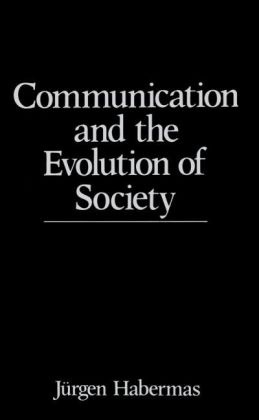Read more
In this important volume Habermas outlines the views which form thebasis of his critical theory of modern societies. The volumecomprises five interlocking essays, which together define thecontours of his theory of communication and of his substantiveaccount of social change.
What is Universal Pragmatics? is the best available statement ofHabermas s programme for a theoryof communication based on theanalysis of speech acts. In the following two essays Habermas drawson the work of Kohlberg and others to develop a distinctive accountof moral consciousness and normative structures. Toward aReconstruction of historical Materialsim takes these issuesfurther, offering a wide-ranging reconstruction of Marx shistorical materialsim understood as a theory of social evolution.The final essay focuses on the question of legitimacy and on thelegitimation problems faced by modern states.
This book is essential reading for anyone concerned with the keyquestions of social and political theory today.
List of contents
Translator s Introduction.
1. What is Universal Pragmatics?.
2. Moral Development and Ego Identity.
3. Historical Materialsim and the Development of NormativeStructures.
4. Towards a Reconstruction of Historical Materialism.
5. Legitimation Problems in the Modern State.
Notes.
Index.
About the author
Jürgen Habermas, 1929 in Düsseldorf geboren, Philosoph und Soziologe, studierte Philosophie, Geschichte und Psychologie in Göttingen, Zürich und Bonn, wo er 1954 promovierte. Von 1956 bis 1959 war er Assistent am Institut für Sozialforschung in Frankfurt am Main und nahm dort wesentliche Impulse der Frankfurter Schule auf. Aus ihrer Tradition hat er die seine weiteren Arbeiten strukturierende Fragestellung entwickelt, wie eine kritische Theorie der Gesellschaft beschaffen zu sein habe, die eine dem erreichten Stand sozialwissenschaftlicher Erkenntnis wie historischer Erfahrung angemessene Theorie der Demokratie darstelle. 1961 habilitierte er in Marburg und wurde auf ein Extraordinariat für Sozialphilosophie nach Heidelberg berufen. 1964 erhielt er eine Professur für Philosophie und Soziologie in Frankfurt am Main. 1971 wurde er, gemeinsam mit Carl-Friedrich von Weizsäcker, Direktor des "Max-Planck-Instituts zur Erforschung der Lebensbedingungen der wissenschaftlich-technischen Welt" in Starnberg. 1982 folgte Habermas dem Ruf nach Frankfurt am Main auf eine Professur für Soziologie und Philosophie. Jürgen Habermas erhielt zahlreiche Ehrendoktorwürden und Preise, darunter den "Friedenspreis des Deutschen Buchhandels" (2001), den "Kyoto-Preis" (2004) und den "Heine-Preis" (2012) "... für sein Lebenswerk, das durch freiheitliche Ideen der Aufklärung, seinen unermüdlichen Einsatz für ein demokratisch verfasstes Deutschland sowie seine streitbaren Beiträge zu den gesellschaftspolitischen Debatten Europas geprägt ist", so die Begründung der Jury. 2013 wurde Jürgen Habermas mit dem "Kulturellen Ehrenpreis" der Landeshauptstadt München ausgezeichnet. Außerdem wurde Jürgen Habermas mit dem Erasmus-Preis 2013 ausgezeichnet.
Summary
In this important volume Habermas outlines the views which form the basis of his critical theory of modern societies. The volume comprises five interlocking essays, which together define the contours of his theory of communication and of his substantive account of social change.

